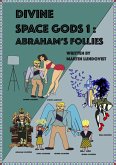In "Human Follies (La Bêtise Humaine)," Jules Noriac presents a penetrating exploration of the absurdities and contradictions inherent in human nature. Blending incisive social critique with rich, evocative prose, Noriac examines the follies that shape human behavior, ranging from vanity and hypocrisy to ignorance and irrationality. Set against the backdrop of a rapidly changing society, the book employs a multifaceted literary style that incorporates satire, allegory, and philosophical discourse, all of which invite readers to reflect critically on their own lives. Jules Noriac, a prolific writer and ardent observer of societal intricacies, draws from his own experiences in a world marred by contradictions. His background in philosophy and social sciences allows him to dissect the complexities of human behavior with both depth and clarity. Through his keen insights into the ills of humanity, Noriac advocates for a deeper understanding of ourselves and the dynamics at play within society, which undoubtedly shaped his perspective in crafting this work. "Human Follies" is essential reading for anyone seeking to fathom the depths of human behavior. Noriac's critical lens resonates with contemporary issues, making it a profound exploration of our continued struggles. This book will challenge readers to confront their own follies and inspires a journey toward self-awareness and growth.
Dieser Download kann aus rechtlichen Gründen nur mit Rechnungsadresse in A, B, BG, CY, CZ, D, DK, EW, E, FIN, F, GR, H, IRL, I, LT, L, LR, M, NL, PL, P, R, S, SLO, SK ausgeliefert werden.









